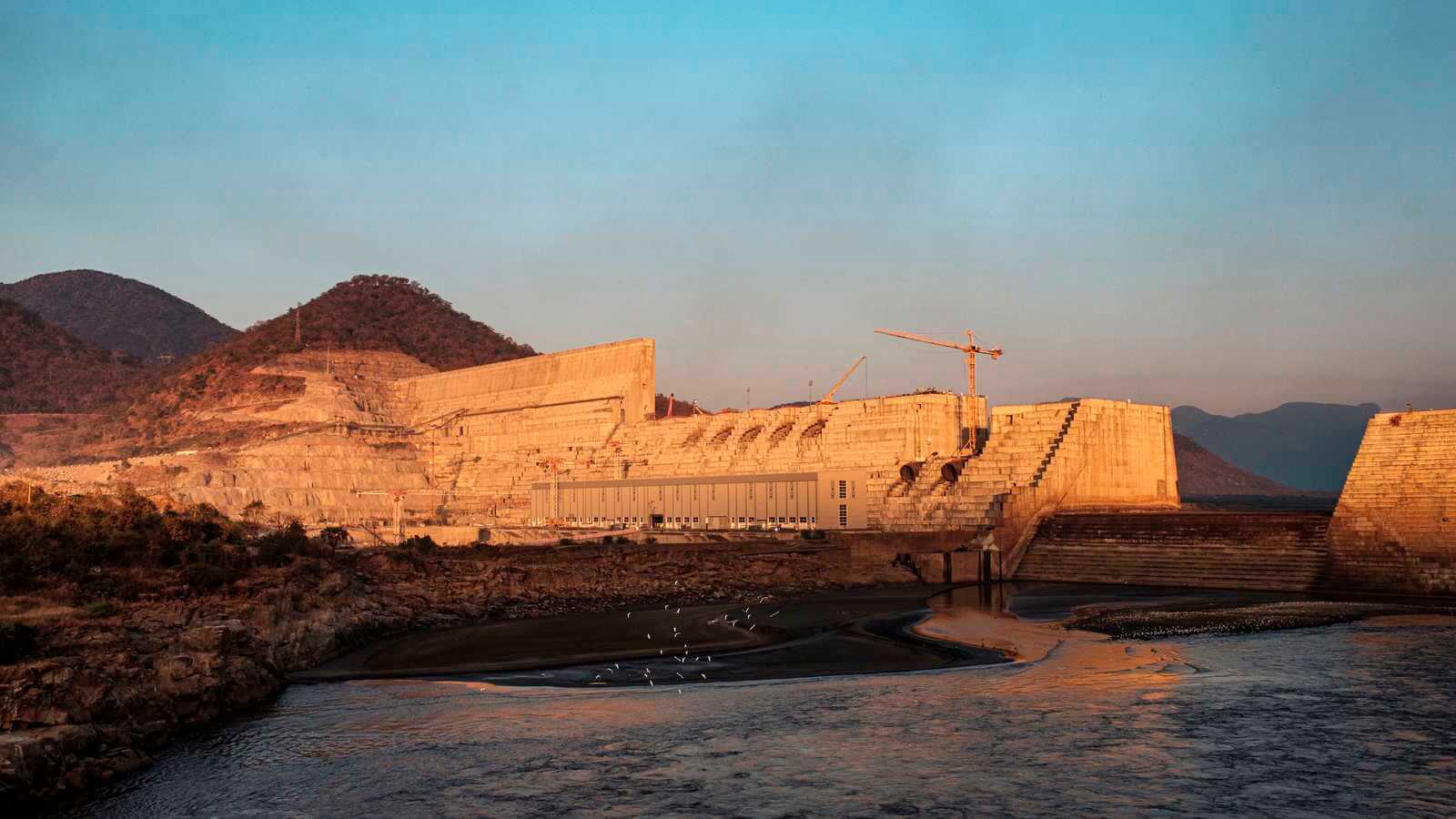On Sunday, Sudan, Egypt, and Ethiopia agreed to continue discussions to resolve their long-running dispute over Addis Ababa’s dam on the Blue Nile. This decision to hold a week-long round of negotiations over the disputed Grand Ethiopian Renaissance Dam (GERD) came after top officials from the three countries held a virtual meeting under the guidance of the African Union (AU) this past weekend. During the meeting, the three sides reviewed their positions on the matter and decided to commence a fresh round of discussions starting January 10.
The forthcoming negotiations between the three African countries will be chaired by South Africa, the current chair of the AU. According to a statement by Sudan’s water ministry, the talks concluded “that this week will be devoted to bilateral talks between the three countries, the experts, and the observers”. The discussions will be aimed at reaching an agreement regarding the controversial dam before the start of the second phase of filling its reservoirs. The negotiations are expected to be completed by the end of January, just before South Africa finishes its one-year term as the AU chair.
The Nile is an international watercourse that has historically been linked mainly to Egypt. It provides nearly 96% of Egypt’s renewable freshwater, and since the country receives abysmally low levels of rainfall, almost 95% of its total population lives within 12 miles of the river, using its resources for agriculture, industrial production, and sewage treatment. Over the past few decades, demands from other riparian states to access the river’s waters and utilize its resources have been perceived as a major national security threat by Egypt. The main issue remains to be that of the GERD, a multi-billion dollar project with the aim of creating a massive hydroelectric power plant that would provide water and power to millions of Ethiopians, who currently face severe deprivation of these resources.
The Blue Nile, a major tributary of the Nile, originates in Ethiopia’s highlands and provides the river with 85% of its total water flow. Put simply, it provides an overwhelming majority of the water that Egypt’s existence depends on. However, Ethiopia has not been allowed to access Egypt's water resources due to a myriad of political, economic, and geostrategic reasons, even though it contributes such an overwhelming majority of Egypt’s total available water. The GERD is meant to solve Ethiopia’s water shortages and generate a new electricity source by which it can export power.
In its riparian region, the GERD could majorly benefit Sudan since it would provide cheap electricity and reduce river flooding. However, Khartoum fears that depending on the volume of water discharged daily, the large operation could threaten its own dams, which are far smaller and downstream. Whereas, Egypt’s position on reducing flow stems from fears that the dam will decrease its supply of Nile water and that any diversion would lead to a significant amount of evaporation and water loss. Therefore, its paramount interest lies in preserving the current status quo.
Previously, the three contesting sides have attempted to resolve the issues through different approaches. Last year, Egypt and Sudan pushed talks through the World Bank and the United States (US) but failed to reach any fruitful outcome as Ethiopia rejected the deal. Several talks were held under the sponsorship of AU, but the negotiations failed again over the contention between the parties to reach an agreement on the filling and operation of the vast reservoir behind the 145-metre (475-foot) tall GERD. The last attempt was made in November, however, it was boycotted by Sudan. Sudanese Irrigation ministry urged that before reaching an agreement, the AU should focus on bridging the gap between the three parties.
It is unclear whether this week’s talks will lead to any progression in talks, but in an indication of the tensions that remain, Ethiopia’s foreign ministry claimed last month that “the dam dispute had become a welcome distraction from domestic problems for the Cairo government”. However, Sudan has said that millions are lives are at “great risk” from the parties’ inability to reach an agreement.
Egypt, Sudan, Ethiopia Initiate Week-Long Talks on Disputed Nile Dam
Egypt, Sudan and Ethiopia will hold a week-long round of negotiations to discuss the substantive aspects and controversial points of the disputed Grand Ethiopian Renaissance Dam.
January 5, 2021

SOURCE: AL-MONITOR
